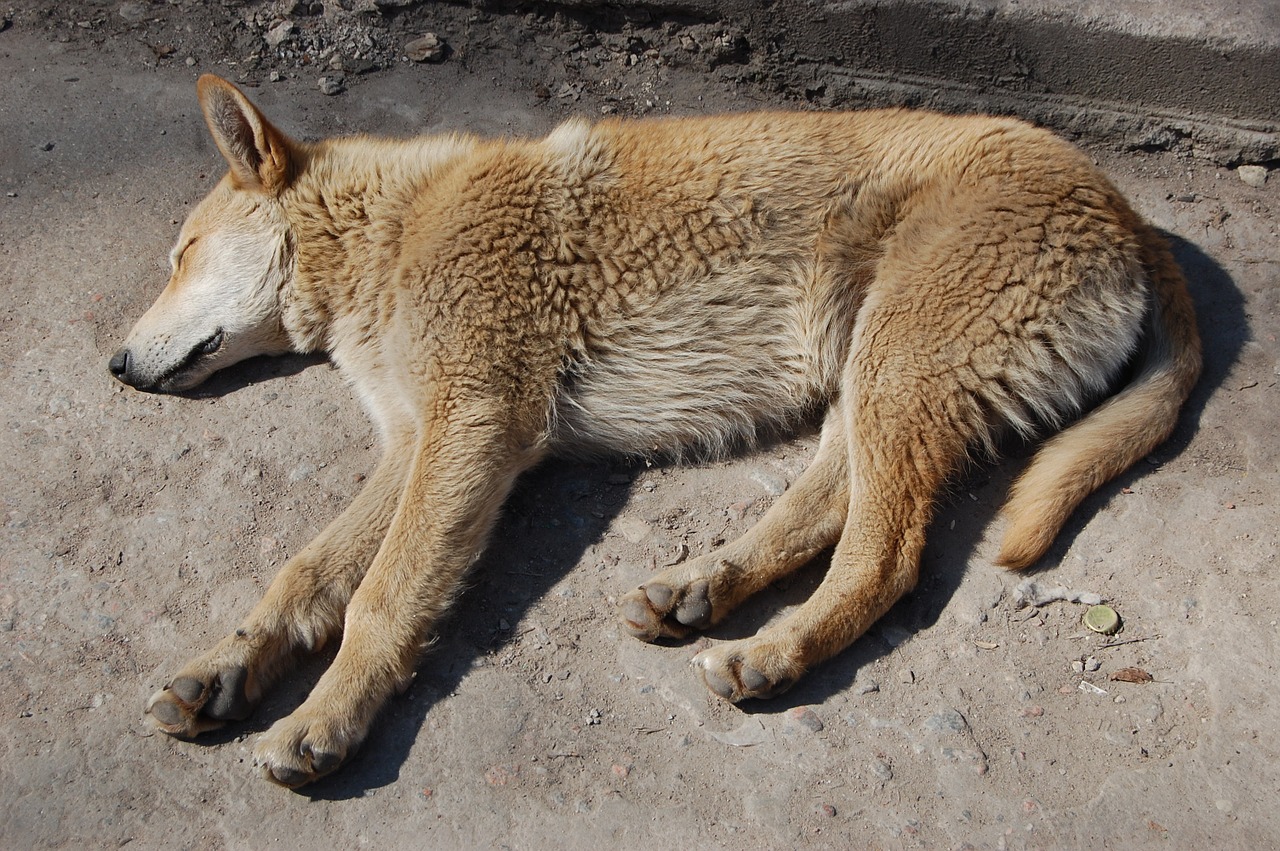My Dog’s Food is Not Digesting
This post contains affiliate links. This means I will make a commission at no extra cost to you should you click through and make a purchase. Read the full disclosure here.
As a dog owner, it can be concerning when you notice that your furry friend’s food is not digesting properly. Digestive issues in dogs can lead to discomfort, poor nutrient absorption, and overall health problems. In this article, we will explore the possible reasons behind poor digestion in dogs and discuss effective solutions to improve their digestive health.
Understanding the Digestive System of Dogs
Dogs have a relatively simple digestive system designed to process and extract nutrients from their food. The process begins in the mouth, where food is chewed and mixed with saliva. From there, it travels down the esophagus into the stomach, where it is broken down further by stomach acids. The partially digested food then moves into the small intestine, where nutrients are absorbed into the bloodstream. Finally, the waste products pass through the large intestine and are eliminated through the rectum.
Common Reasons for Poor Digestion in Dogs
Several factors can contribute to poor digestion in dogs. It is essential to identify the underlying cause to effectively address the issue. Here are some common reasons for poor digestion in dogs:
Dietary Factors Affecting Digestion
Inadequate Quality of Dog Food
Low-quality or poorly balanced dog food can be challenging for your dog to digest properly. Such food may contain excessive fillers, artificial additives, or low-quality protein sources, leading to digestive upset.
Sudden Dietary Changes
Abrupt changes in your dog’s diet can disrupt their digestive system. Dogs need time to adjust to new foods, and sudden transitions can cause gastrointestinal distress.
Overfeeding or Underfeeding
Feeding your dog too much or too little can impact their digestion. Overfeeding can overload their system, while underfeeding can result in inadequate nutrient intake.
Medical Conditions Affecting Digestion
Food Allergies or Intolerances
Some dogs may develop allergies or intolerances to specific ingredients in their food. This can lead to digestive issues, such as diarrhea, vomiting, or gas.
Gastrointestinal Disorders
Various gastrointestinal disorders, such as gastritis or gastroenteritis, can affect a dog’s digestion. These conditions often cause inflammation and irritation in the digestive tract.
Pancreatic Insufficiency
Pancreatic insufficiency occurs when the pancreas fails to produce enough digestive enzymes. Without these enzymes, the dog’s ability to break down food and absorb nutrients is compromised.
Inflammatory Bowel Disease
Inflammatory bowel disease (IBD) is a chronic condition characterized by inflammation of the intestinal lining. It can cause digestive disturbances and nutrient malabsorption.
Intestinal Parasites
Parasites, such as worms, can disrupt the digestive process in dogs. They feed on the nutrients meant for the dog, leading to poor digestion and other health issues.
Signs of Poor Digestion in Dogs
Detecting signs of poor digestion in your dog is crucial for timely intervention. Look out for the following symptoms:
- Frequent diarrhea or loose stools
- Vomiting or regurgitation
- Excessive gas or bloating
- Bad breath
- Lack of appetite
- Weight loss or poor weight gain
- Abdominal discomfort or pain
If you notice any of these signs persisting or worsening, consult your veterinarian for a proper diagnosis and treatment plan.
Steps to Improve Digestion in Dogs
When addressing poor digestion in dogs, it is important to involve a veterinarian for accurate guidance. Here are some general steps you can take to improve your dog’s digestion:
Consult a Veterinarian
Discuss your concerns with a veterinarian who can assess your dog’s overall health, perform diagnostic tests if necessary, and provide specific recommendations.
Assess the Diet
Evaluate your dog’s current diet to identify any potential triggers or issues. Take note of the ingredients, nutritional composition, and any recent changes.
Provide a Balanced Diet
Opt for high-quality dog food that provides complete and balanced nutrition. Look for options that include easily digestible protein sources, healthy fats, and appropriate fiber content.
Feed Smaller, Frequent Meals
Dividing your dog’s daily food intake into smaller, more frequent meals can aid digestion. This approach prevents overloading the digestive system and promotes better nutrient absorption.
Monitor Water Intake
Ensure your dog has access to fresh, clean water at all times. Sufficient hydration is essential for proper digestion and overall health.
Consider Probiotics
Probiotics are beneficial bacteria that can support a healthy gut microbiome. Talk to your veterinarian about incorporating a high-quality probiotic supplement into your dog’s routine.
Slow Down Eating
Some dogs may gulp down their food too quickly, leading to digestive issues. Use specialized bowls or interactive feeders designed to slow down eating and promote better digestion.
Home Remedies to Aid Digestion
In addition to veterinary guidance, you can try some home remedies to aid your dog’s digestion. Remember to consult your veterinarian before introducing any new supplements or ingredients into your dog’s diet. Here are a few options:
Pumpkin
Canned pure pumpkin, not pumpkin pie filling, can help regulate digestion in dogs. It contains fiber that can firm up loose stools or soften hard ones.
Plain Yogurt
Plain, unsweetened yogurt containing live cultures can contribute to a healthy gut. It provides beneficial bacteria and aids in digestion.
Bone Broth
Homemade bone broth is gentle on the digestive system and can soothe inflammation. It also provides additional nutrients and hydration.
Digestive Enzymes
Digestive enzyme supplements can assist in breaking down food and improving nutrient absorption. Speak to your veterinarian about appropriate enzyme products for your dog.
Conclusion
Ensuring that your dog’s food is digesting properly is vital for their overall health and well-being. By understanding the common causes of poor digestion, making appropriate dietary adjustments, and seeking veterinary guidance, you can help your dog achieve optimal digestive function. Remember to monitor their symptoms closely and consult a professional if you have concerns or if the symptoms persist.
FAQs (Frequently Asked Questions)
- How long does it take for dog food to digest?
- The digestion process in dogs typically takes around 8 to 10 hours, but it can vary depending on factors like the dog’s size, age, and diet.
- Can I give my dog digestive supplements?
- Digestive supplements, such as probiotics or digestive enzymes, can be beneficial for dogs with digestive issues. However, it is essential to consult your veterinarian before introducing any new supplements.
- Is it normal for dogs to vomit occasionally?
- Occasional vomiting can be normal for dogs, but persistent or frequent vomiting may indicate an underlying issue. Consult your veterinarian if you are concerned about your dog’s vomiting.
- Can stress affect a dog’s digestion?
- Yes, stress can affect a dog’s digestion. Just like humans, dogs can experience digestive disturbances during periods of stress or anxiety.
- When should I seek veterinary help for my dog’s digestion issues?
- If your dog’s digestion issues persist, worsen, or are accompanied by other concerning symptoms like severe lethargy, dehydration, or blood in the stool, it is important to seek veterinary help promptly.












